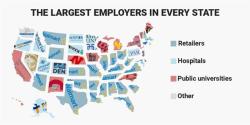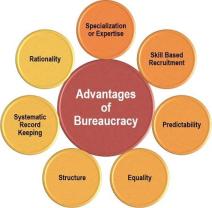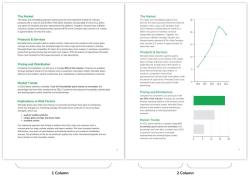What are some examples of business plans?
While the specific content and format of business plans can vary widely depending on the industry, company size, and purpose, there are certain elements that are commonly included. Here are three examples of business plans, each tailored for a different type of business:
Tech Startup Business Plan:
- Executive Summary: Brief overview of the company, its mission, and key objectives.
- Company Description: Details about the business, including its products/services, target market, and competitive advantages.
- Market Analysis: Comprehensive research on the target market, industry trends, and competitors.
- Organization and Management: Structure of the company, key team members, and their roles.
- Product or Service Line: In-depth description of the products or services offered.
- Marketing and Sales Strategy: Plan for reaching and acquiring customers.
- Funding Request: If applicable, details on the amount of funding needed and its use.
- Financial Projections: Sales forecasts, income statements, cash flow projections, and balance sheets.
- Appendix: Any additional information, such as resumes of key team members or market research data.
Restaurant Business Plan:
- Executive Summary: Concise overview of the restaurant concept, goals, and unique features.
- Company Description: Detailed information on the restaurant's theme, location, and vision.
- Market Analysis: Research on the target market, demographics, and competition.
- Organization and Management: Structure of the restaurant, key staff, and their roles.
- Menu: A detailed menu description, pricing strategy, and potential future offerings.
- Marketing and Sales Strategy: How the restaurant will attract and retain customers.
- Funding Request: If seeking financing, a clear explanation of how much is needed and its purpose.
- Financial Projections: Sales forecasts, profit and loss statements, and cash flow projections.
- Appendix: Additional information like resumes of the chef and key staff, photographs, and market research.
Retail Store Business Plan:
- Executive Summary: Overview of the retail store, its mission, and objectives.
- Company Description: Details about the store's products, target customers, and location.
- Market Analysis: Research on the target market, trends, and competitive landscape.
- Organization and Management: Structure of the retail business, key staff, and their roles.
- Product Line or Services: Comprehensive description of the products or services offered.
- Marketing and Sales Strategy: Plan for promoting and selling products, including online and offline strategies.
- Funding Request: If seeking financing, a breakdown of the amount needed and its use.
- Financial Projections: Sales forecasts, income statements, cash flow projections, and balance sheets.
- Appendix: Additional information such as resumes, vendor agreements, and market research.
Remember, these examples provide a general framework, and each business plan should be tailored to the specific needs and goals of the company. Additionally, the business plan should be updated regularly to reflect changes in the market, industry, and business operations.
Examples of business plans
Here are some examples of business plans:
- Start-up business plan: A start-up business plan is a plan for a new business that is not yet generating revenue. It typically includes sections on the company's products or services, target market, competitive landscape, financial projections, and management team.
- Growth business plan: A growth business plan is a plan for a business that is already generating revenue but wants to grow its business. It typically includes sections on the company's current financial performance, growth goals, and strategies for achieving those goals.
- Turnaround business plan: A turnaround business plan is a plan for a business that is struggling financially. It typically includes sections on the company's current financial situation, the challenges it is facing, and strategies for turning the business around.
How business plans vary based on industry and company size
Business plans vary based on industry and company size in a number of ways. For example, a business plan for a software start-up will be different from a business plan for a brick-and-mortar retail store. A business plan for a small business will also be different from a business plan for a large corporation.
Here are some of the key differences between business plans for different industries and company sizes:
- Industry: The industry in which a business operates will have a significant impact on its business plan. For example, a business plan for a technology company will need to include sections on the company's intellectual property, its technology development roadmap, and its plans for entering new markets. A business plan for a healthcare company will need to include sections on the company's regulatory compliance, its reimbursement strategies, and its plans for managing patient data.
- Company size: The size of a company will also have an impact on its business plan. For example, a small business may not need to include a detailed financial projections section in its business plan. A large corporation, on the other hand, will need to provide detailed financial projections to its investors and lenders.
Key elements that should be included in every business plan
Every business plan should include the following key elements:
- Executive summary: The executive summary is a one-page overview of the business plan that highlights the key points.
- Company description: The company description section provides a detailed description of the business, including its products or services, target market, and competitive landscape.
- Market analysis: The market analysis section provides an overview of the company's target market and the competitive landscape.
- Marketing plan: The marketing plan section outlines the company's strategies for reaching and acquiring customers.
- Operations plan: The operations plan section describes how the company will produce and deliver its products or services.
- Management team: The management team section describes the company's management team and their qualifications.
- Financial projections: The financial projections section provides detailed financial projections for the business.
In addition to these key elements, business plans may also include other sections, such as a SWOT analysis, a risk assessment, or a social impact plan. The specific sections that are included in a business plan will vary depending on the needs of the business and the audience for the business plan.
Conclusion
Business plans are an important tool for businesses of all sizes and industries. They can help businesses to attract investors and lenders, to develop and execute their strategies, and to track their progress over time.








